 Green Mosaic of Opportunity
Green Mosaic of Opportunity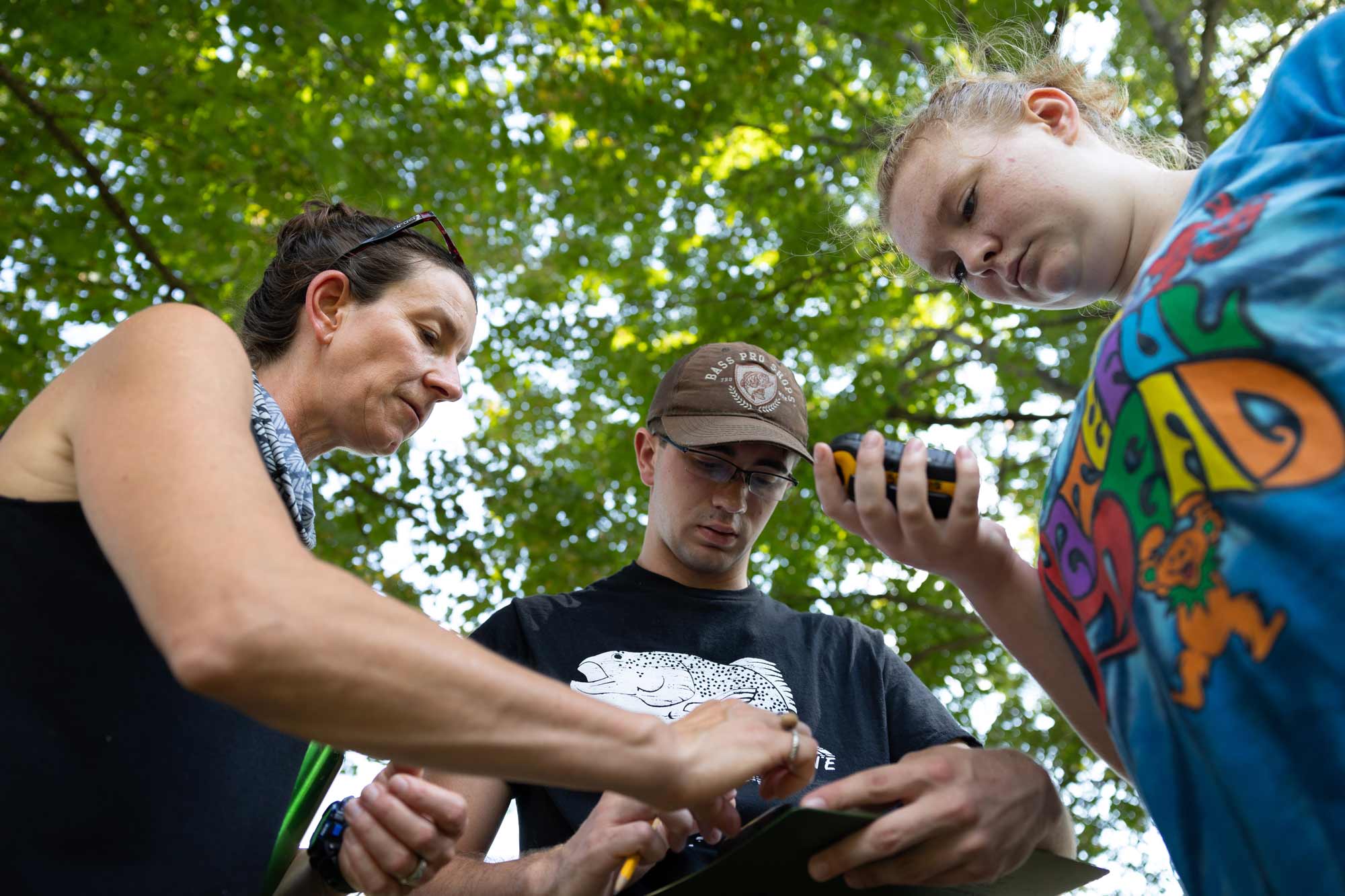
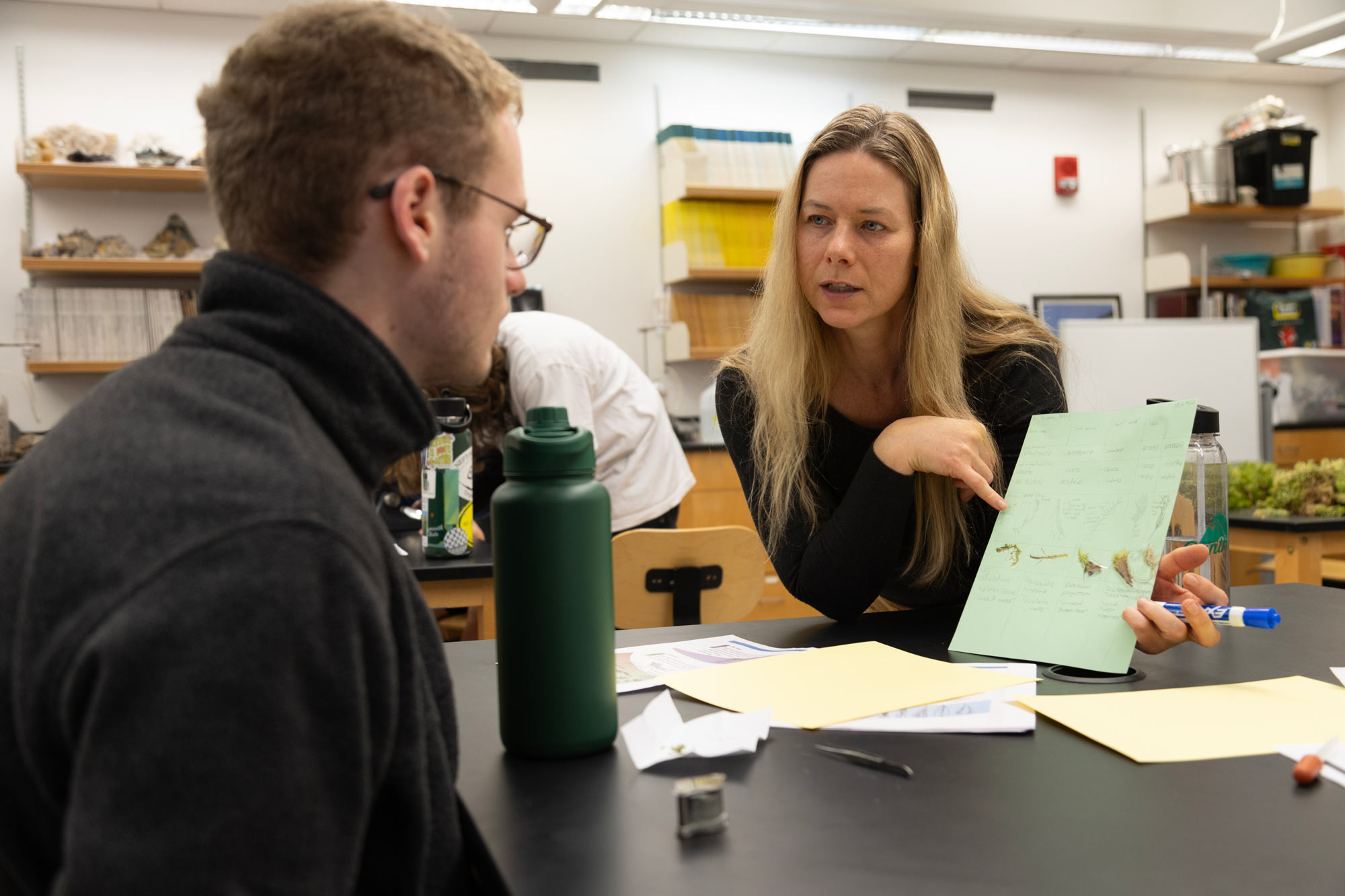
These pathways comprise a variety of interchangeable pieces that come together to create a unique education and include our Habits of Mind Experience (HoME), majors, minors, internships, research, clubs, on-campus employment, and residential programming. Students can start their journey on day one or find their way later in their time at Plymouth State.
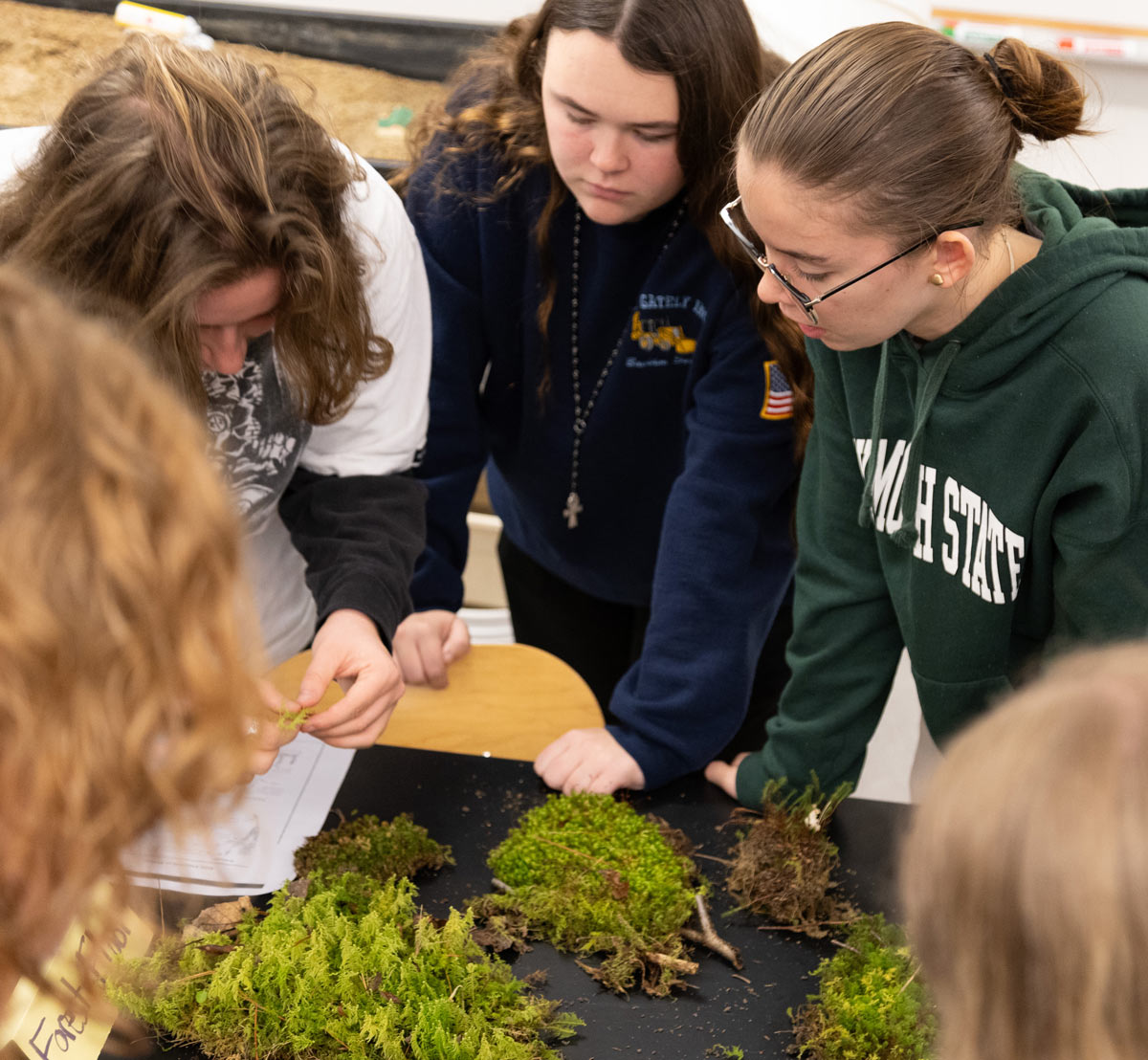
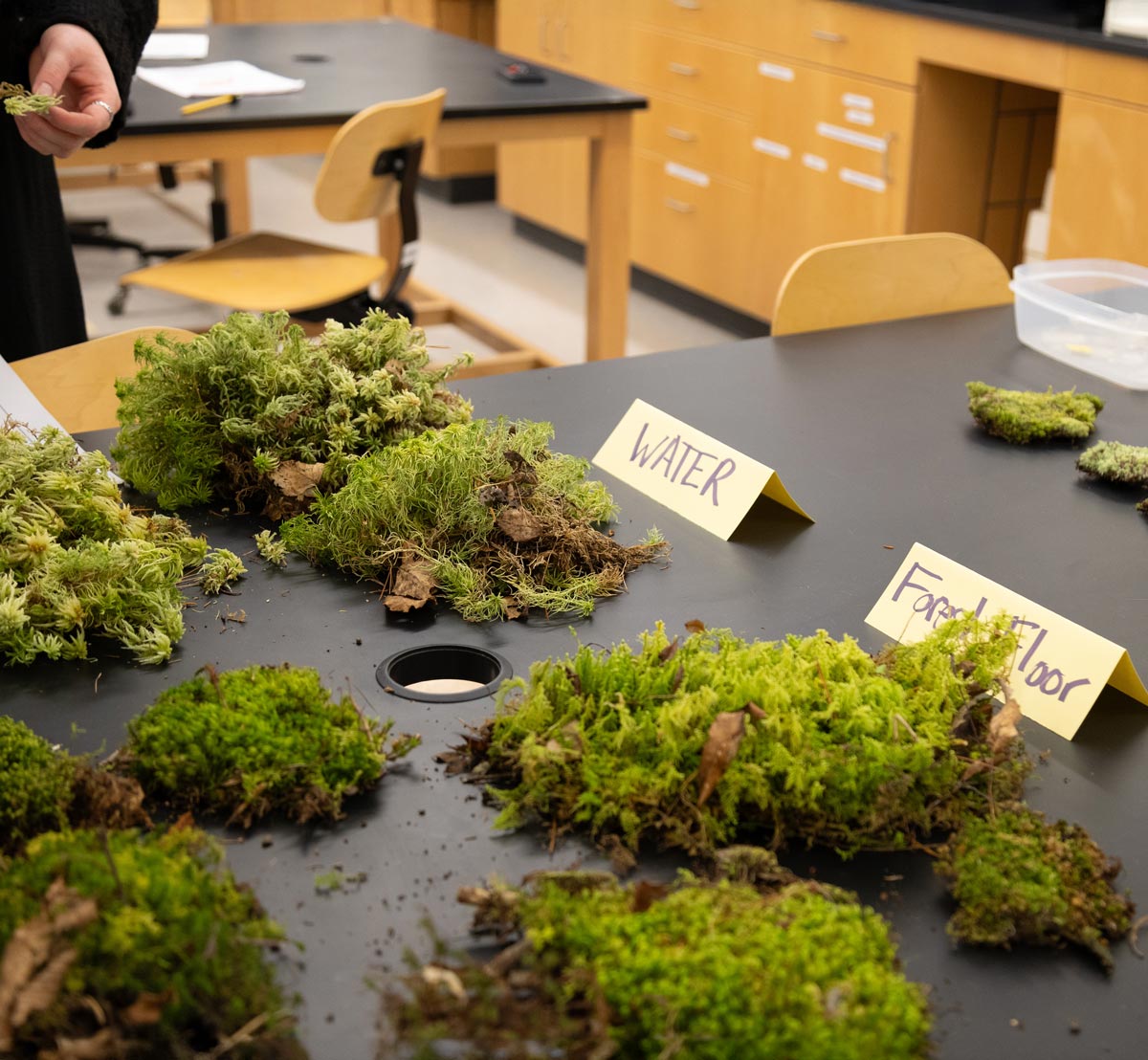
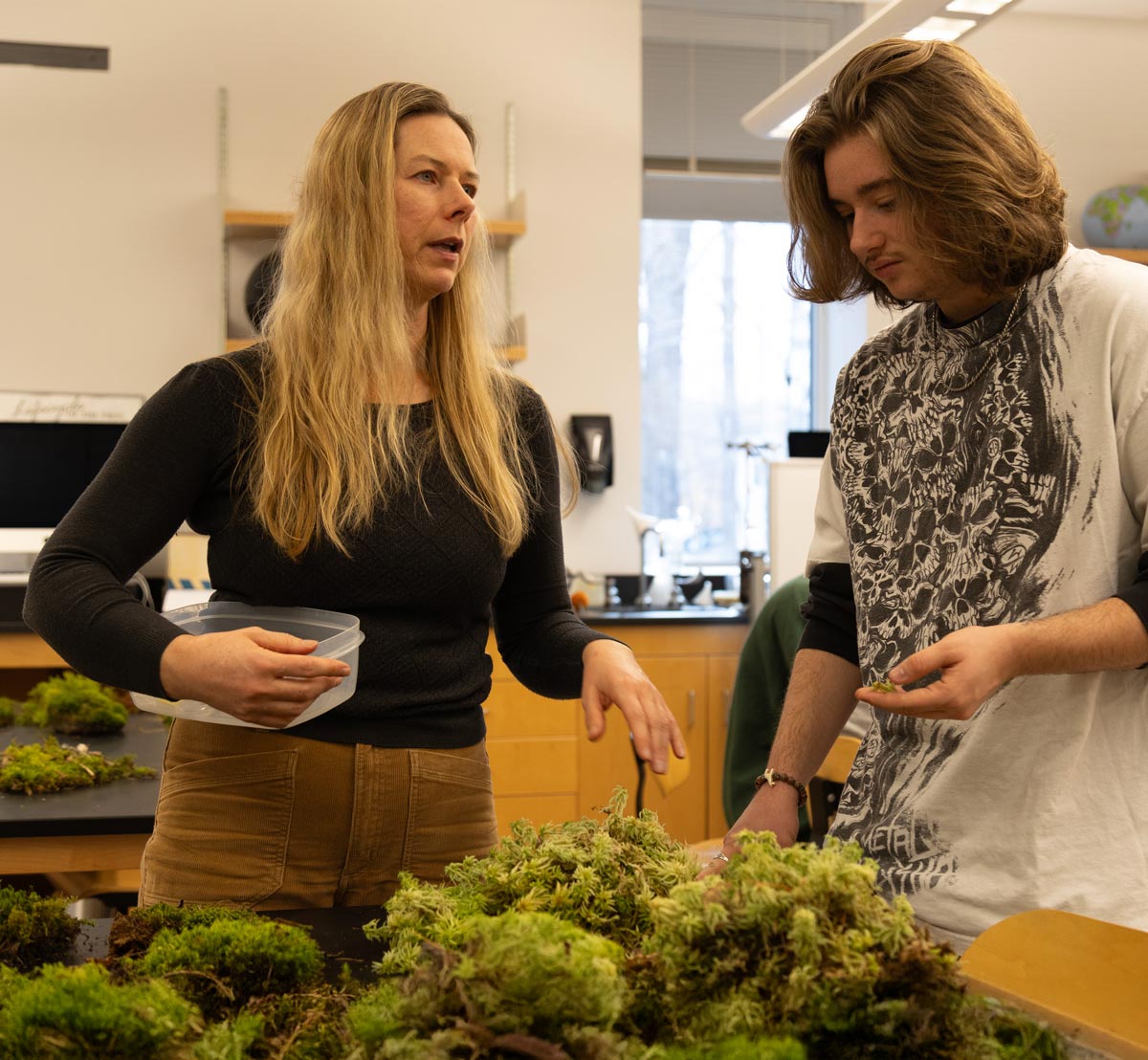
One of the best parts of our green mosaic is that sitting next to that student may be a sustainability studies major with a minor in marketing who is a member of MAPS (Marketing Association of Plymouth State), who also decides to minor in global health, which, through our collective professional networks, snags a summer internship working for a green entrepreneur who helps inspire their engagement in our Panther Pitch competition.
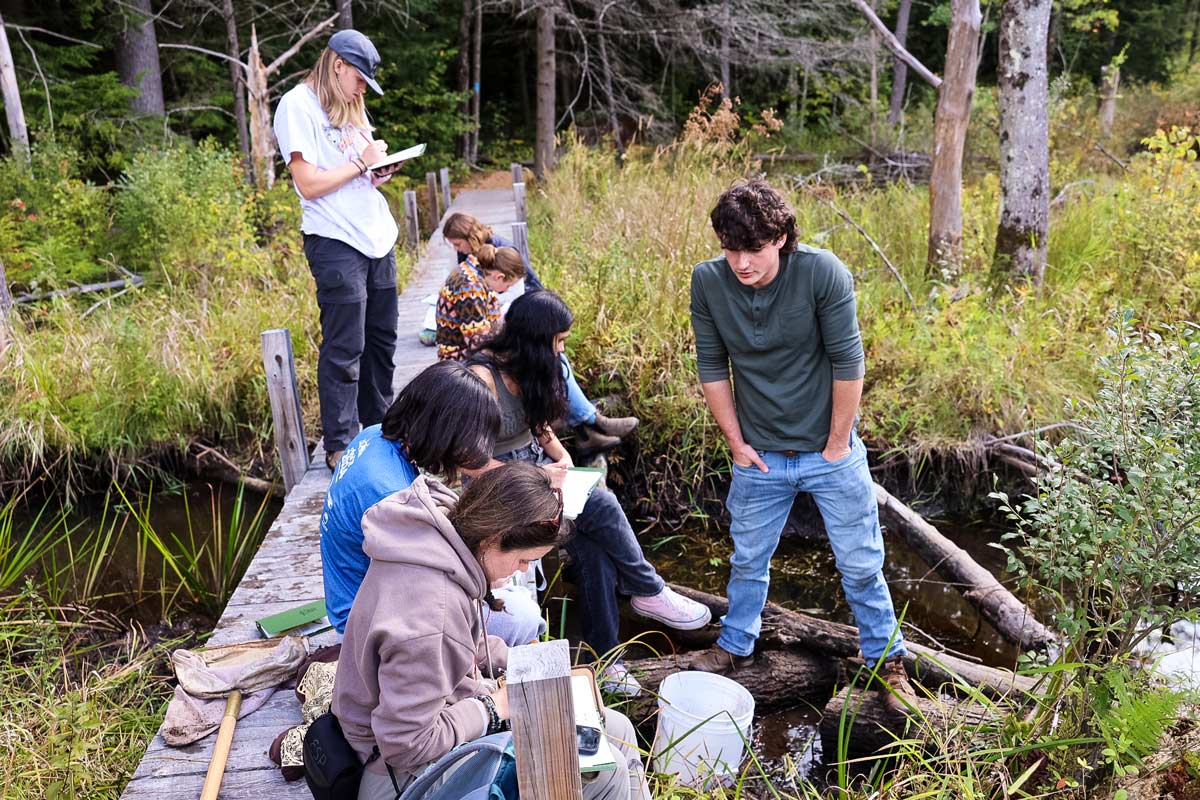
From Panther Days orientation to Commencement, Plymouth Staters embarking on a green-focused journey explore the complicated and interdisciplinary realities of the environment and society’s influence. Climate change, biodiversity loss, environmental injustice, global health, and sustainability are considered at the global and local scales, and everything in between.
Plymouth State’s blend of place, community, purpose, and experience is truly unmatched. What I love about our university is that we get to live and learn in what we love, respect, and value. We are surrounded each day with opportunities to observe, learn from, and appreciate the natural world. The high-impact, life-changing experiences that we seek to share with our students are at our fingertips every day.

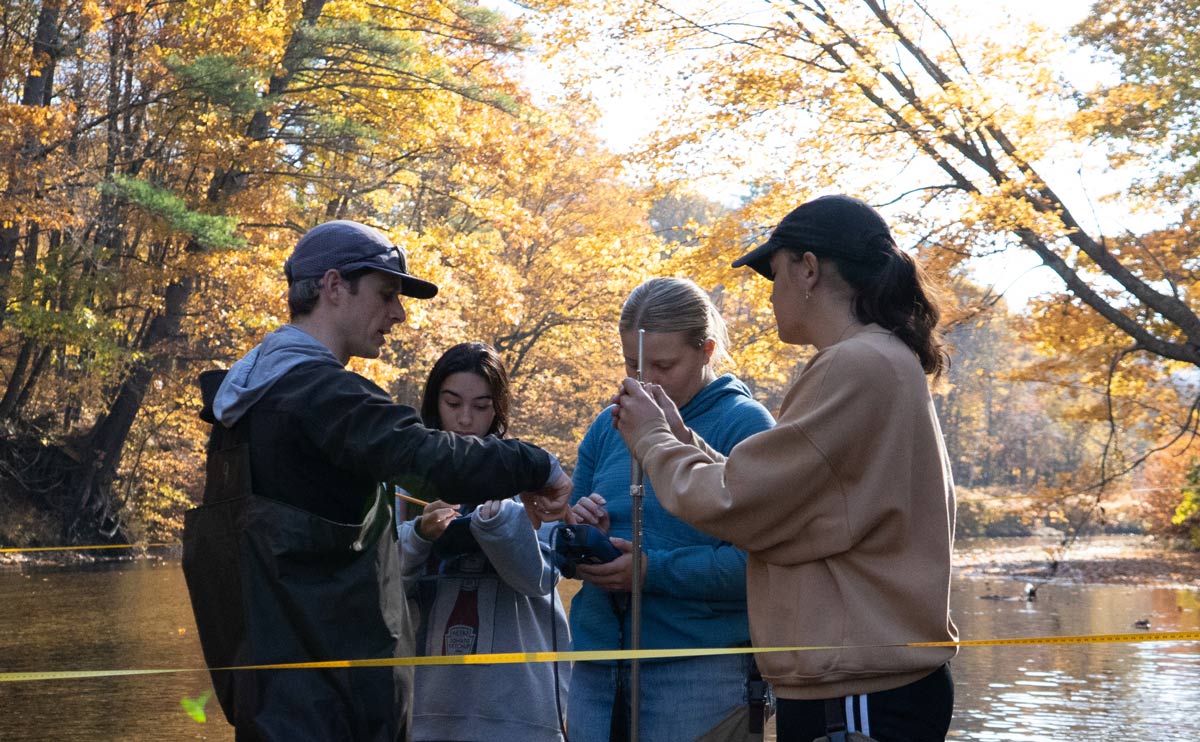
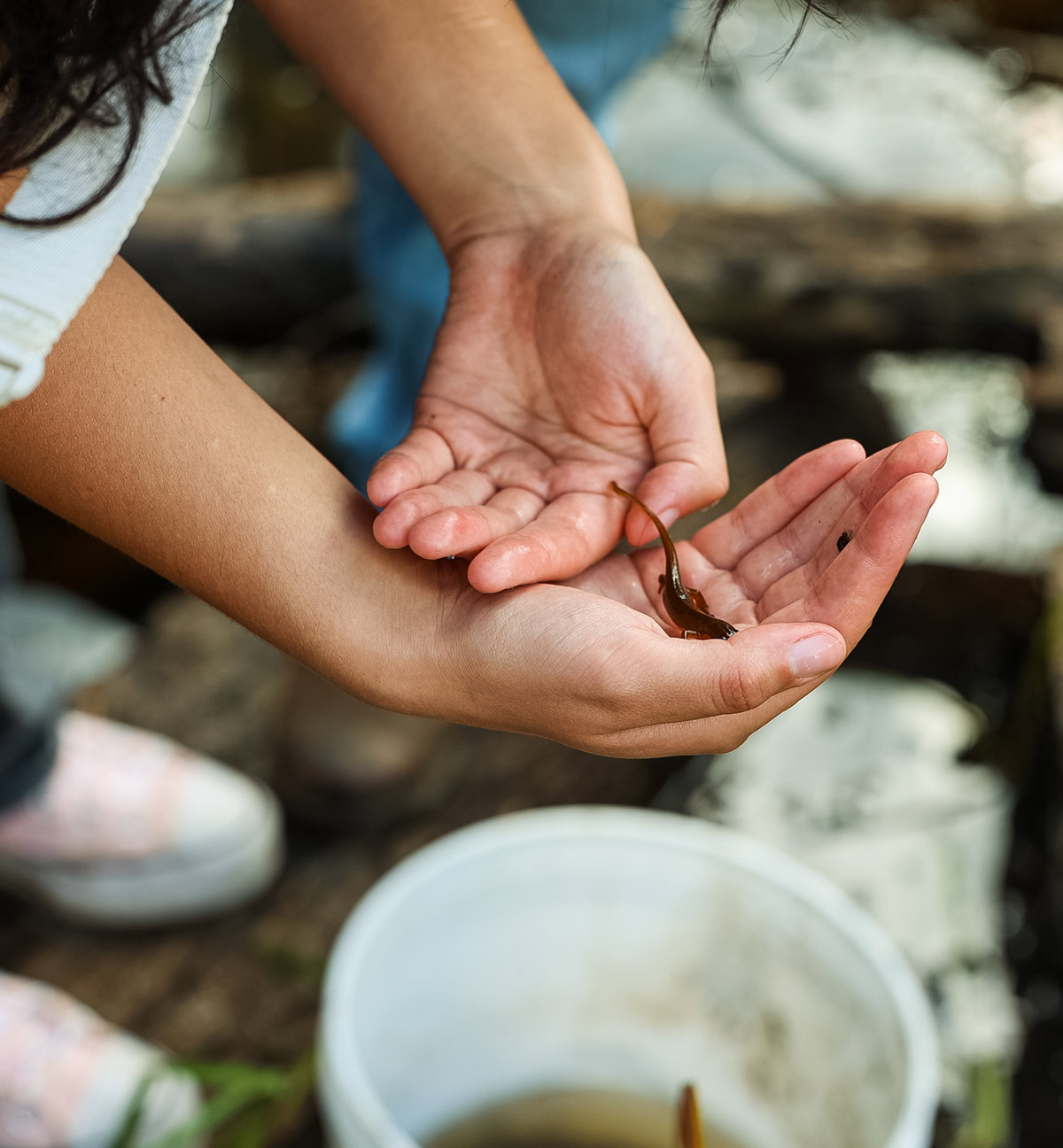
Through a shared love and respect for this incredible place of beauty and recreational riches we call home, Plymouth Staters also belong to a community of professionals with whom we collaborate on research, stewardship, and education. In the classroom and beyond, through service-learning opportunities and internships, our students expand their professional networks while expanding their knowledge and perspectives. In these same experiences, our collaborators model the value of life-long learning, commitment, and service toward the greater good.
“We are immensely grateful to Senator Jeanne Shaheen and our other congressional delegates for their support in providing this federal funding,” said President Donald L. Birx. “These grants will be a gamechanger for the University as they enable us to advance our robust energy efficiency initiatives and a sustainability program that embodies our Cluster Learning Model. Ultimately, this funding will empower our students to address the critical challenges of our time.”
The sustainability projects will focus on several areas including:
- New solar arrays on building rooftops, such as the Savage Welcome Center & Ice Arena and the Silver Center for the Arts. The new solar arrays are expected to generate approximately three times as much energy as the existing solar panels on the Physical Education Center.
- Insulation, heat, and energy efficiency upgrades at the Physical Education Center.
- Installation of a Renewable Energy Open Laboratory, which will provide students with hands-on learning opportunities with the latest in sustainable energy technology.
The grant was included in a congressionally directed spending (CDS) bill, which was signed into law by President Joe Biden.